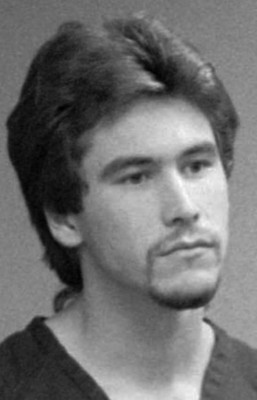Killer in 1995 death who had second thoughts about execution gets stay
CARSON CITY -- Nevada death row inmate William Castillo, who last year came within 90 minutes of his wish to be executed for a 1995 Las Vegas murder, has changed his mind and has been given a stay by a federal judge.
In an order dated last month, U.S. District Judge Robert Jones ordered a stay of execution for Castillo while he appeals his case in federal court. Castillo and his attorneys were given until Sept. 12 to file new court documents raising issues on appeal.
Castillo was sentenced to die for the 1995 beating death of Isabelle Berndt, 86, in Las Vegas after working on a roofing job at her home and finding a hidden house key. He and a female companion returned, burglarized the home and murdered Berndt.
Castillo set the home on fire to destroy evidence, but he later admitted the murder to a co-worker and confessed to police.
Castillo, 35, last fall decided to end his appeals and allow himself to be executed.
All but one of Nevada's 12 executions carried out over the past 29 years have occurred when inmates have given up their appeals.
Castillo already had eaten what was to be his last meal, a cheeseburger, on Oct. 14, when the Nevada Supreme Court stepped in and issued a stay to allow more time to consider legal issues raised by the ACLU of Nevada concerning the state's use of lethal injection as the method of execution.
The case is pending before the state Supreme Court.
One of the issues raised by the ACLU in the Nevada case is whether one of three drugs used in the execution serves only to mask the reaction of the inmate to the final drug that induces death, thus violating the First Amendment by not allowing the public and media representatives to see the full effect of the process.
The argument is that the second drug, pancuronium bromide, a paralytic drug, is used only to veil the reaction of the inmate to his death.
Castillo, because he wanted to be executed, was not a party in the original case seeking to stop his execution. But last month his attorneys asked the court to allow Castillo to be a party in the case.
In the filing, attorneys with the federal public defender's office said Castillo's case should be returned to state district court to fully address the constitutionality of Nevada's execution processes.
The state Department of Corrections, in a response to the request by Castillo to join the case, said it is unnecessary because a stay of execution already has been granted by the federal court.
The Nevada lethal injection case is still active, despite an April 16 decision by the U.S. Supreme Court upholding the use of the drug cocktail for capital punishment.
The U.S. Supreme Court said in a case out of Kentucky that drugs used by states for execution do not violate the Eighth Amendment of the U.S. Constitution prohibiting cruel and unusual punishment.
Castillo is one of the 84 convicts under sentence of death in Nevada.
His accomplice, Michelle Platou, pleaded guilty to murder and other charges and was sentenced to life in prison with a chance for parole after 20 years.

















